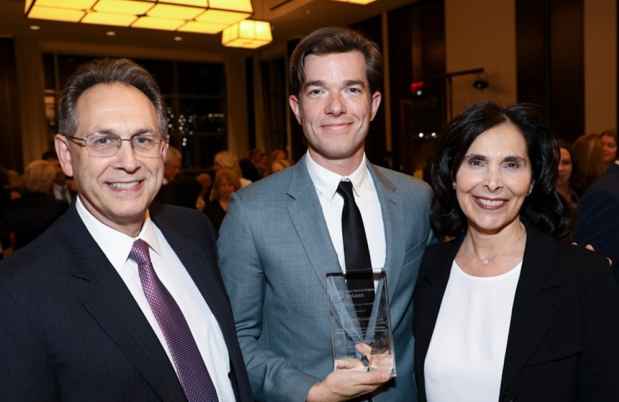McLean’s Program of Assertive Community Treatment (PACT) strives to provide customized, person-centered care in the community. Serving people that primarily have chronic mental illnesses like schizophrenia and bipolar disorder, the program’s goal is to help people live fulfilling, independent lives, keeping them at home and out of the hospital.
“We walk alongside them, recognizing the potential and power within them,” said PACT Medical Director Rahel Bosson, MD. “We help stabilize them clinically so they can transform their lives in ways that are meaningful to them.”
In its fourth year, McLean’s PACT is striving to care for more people from underserved communities who have traditionally not looked to McLean as a treatment option. And philanthropy is helping make this a reality.
The PACT approach is hands-on and practical, helping patients apply coping skills they have learned in therapy to their everyday lives.
Much of the team’s work takes place in the community. For instance, PACT may assist people with activities like managing medications, job hunting, running errands, accessing government benefits, navigating the court system, and handling crises.
The team is focused on the goals of the individual. They also work to include patients in all aspects of decision-making by using concepts of Open Dialogue and Dialogic Consults, which create opportunities for equity in conversation and do not characterize the clinician as an ‘expert’ who holds the answers.
One current patient is recovering from a manic episode and having trouble keeping organized, said Bosson. “We’re helping her with cooking, grocery shopping, cleaning, and organizing so she can feel more comfortable in her living space. We also teach people to recognize the early warning signs of decompensation—when their mental health begins to deteriorate—so they can alert the team and we can provide appropriate support.” The PACT team is available 24/7.
Health Equity to the Forefront
In the past year, PACT has prioritized serving more communities of color, so Bosson has been forging relationships with community health centers, faith organizations, and other institutions that are integrated in people’s lives. “We need to build bridges between McLean and these communities,” she explained. “We believe the best way to do that is to create partnerships with organizations where trust has already been established.”
This new emphasis on reaching underserved patients will not be a one-and-done effort, according to Bosson, but rather the early stages of a transformation that is occurring hospital-wide. “I want to graft our PACT team into the community so people see McLean as a place where they can receive effective care.”

Program Director Kelly Scanlon, LICSW, and Medical Director Rahel Bosson, MD
PACT also plans to expand and diversify its staff to better reflect the populations it serves, and step-up cultural competency training for program staff and the broader clinical staff within McLean’s Division of Psychotic Disorders.
“Being an immigrant myself, I appreciate the significant role that culture, beliefs, and background play in health care, how you interpret your illness, and how you recover,” said Bosson, who was born in Ethiopia and spent her formative years there and in Sweden and Belgium.
“We want to provide care that is informed by cultural context and upbringing. Often, we expect our patients to adapt themselves to what we need, but instead, we should be adapting to the needs of our patients.”
The Critical Role of Philanthropy
McLean’s PACT program was started via philanthropy, and donor support has been critical to its growth and evolution. National Council member Monica Luke, who was instrumental in creating a PACT team at McLean in 2017, has generously supported the program through the Living Assistance Fund.
Former McLean Trustee Ron Jackson supports PACT because he is impressed with the program’s goals. “PACT enables people with serious mental illnesses to stay out of the hospital and live more fulfilling lives,” he said.
Sixteen people are enrolled full-time in PACT and seven, who are able to be more independent, are served in the step-down program.
“If something is going on with these individuals between meetings, we expect them to initiate contact,” said Program Director Kelly Scanlon, LICSW. Patients typically spend between three and 12 months in PACT.
In addition to Bosson and Scanlon, PACT’s treatment team is made up of three licensed social workers, a nurse practitioner, and a certified peer specialist with expertise in job counseling.
Patient-Centered With Family Involvement
PACT’s patient-centered approach means that the staff is always trying to assess what’s important to patients, so those receiving care can rebuild their lives based on things that are meaningful to them.
The PACT team also does family coaching, helping relatives transition out of the central role they’ve played in their loved one’s lives. “Families need help figuring out how best to support their family member toward independence,” explained Scanlon. “We have weekly calls with families and rely heavily on them for feedback on how things are going.”
Studies of the PACT model have shown that the multidisciplinary, wraparound supports and ability to intervene quickly when illnesses exacerbate help keep patients out of the hospital or shorten lengths of stay, and reduce homelessness and incarceration. PACT is still in the early stages of its expansion, but it has already received several referrals from communities it hasn’t served in the past.
“Philanthropy is so important to making this vision possible, and we’re incredibly grateful for the insight of the donors who support our program,” said Bosson.
To support PACT at McLean, contact Keith or designate PACT when you make a gift online.
Media Requests
Journalist or member of the media? We are available 24/7 for media requests.



